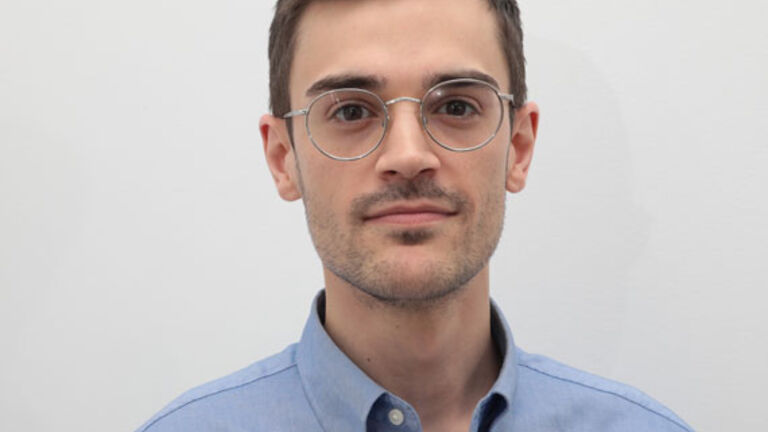
Q&A with Clayton Flynn (BFA 2008)
by Jessie Burnes (Post-Bac 2019)
Clayton Flynn (BFA 2008) is director of sales at Andrew Edlin Gallery in Brooklyn, New York. With more than 13 years of fine art and design consultant experience, Flynn has assisted collectors, organizations, and institutions alike. While at SAIC, Flynn focused his studies in Art History, Theory, and Criticism and Photography. In this conversation with Flynn, we explore the wide range of responsibilities and opportunities in his career path.
How would you describe a day in your job?
The day-to-day involves meeting with walk-ins and setting up client appointments. It’s sending and responding to a lot of emails and texts, phone calls, and following up on all of it. Also, studio visits are important since the art world is heavily saturated these days so it can be a hustle getting eyes on work, for both artists and galleries.
What skills do you think are necessary for professionals who specifically want to engage in the realm of art sales?
You have to have personality and be savvy—which is different from character and intelligence. Good salespeople also know what they are selling—in terms of art history and the work/artist’s market—and who they are selling it to.
What do you enjoy most about your work?
My favorite part is the research and outreach involving private, corporate, and institutional collections. I also really enjoy studio visits, which I attribute to my training in the arts. Talking with artists and collectors about work for me always begins with material, form, process, and exploring the places one can go from there.
What has been the most important thing you’ve learned in the field of art sales?
When to talk and when to be quiet. What to say and not to say, how to say it and to whom.
What advice do you have for pursuing leadership opportunities and skills out of school? Get as much varied experience as you can. Have the highest possible standards for your own and other’s work, and ensure that these standards are difficult but achievable. Be based in reality and be understanding. Be honest and brave. Learn patience and empathy. Demand honest pay for honest work. Remember all of this when you are on top.
What advice can you give to today’s students?
Pay attention, do your work, do your readings, and learn. Explore and remember. In the most unromantic way possible, art is cultural heritage and it is important.
What has been the most surprising part of art sales?
I’ve been able to do whatever I want. I have worked in photography, design, contemporary and outsider art, at an encyclopedia, a historical society, art centers, galleries, museums in foreign countries, artist’s studios, nonprofits, and private collections. I now direct or advise some of the top organizations and collectors in their respective fields and maintain consultancy for a few past employers. I am shocked by and immensely grateful for my clients’ trust and loyalty.
